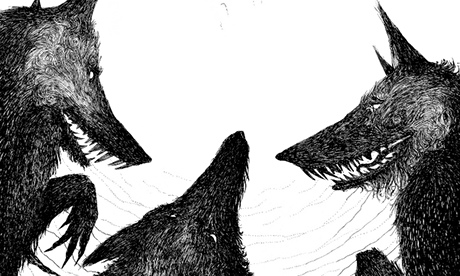
It started with a comic. A whole bag of them, in fact. I was 8 or 9 years old and a friend passed on a heap of back numbers so that, instead reading one issue and having to wait a week for the next, I could feast. It was there I found The Wolves of Willoughby Chase by the incomparable Joan Aiken.
It wasn't a cartoon strip but a proper serialised book. I think it featured in the Diana comic for girls, which was a cut above Bunty, and June and Schoolfriend. I can't remember if I managed to follow the entire story through that carrier bag of treasure, but I was hooked: blizzards, wolves and wicked adults with wonderful names like Slighcarp and Grimshaw conspiring against desperate, good-hearted children. I'd never read anything quite like it! I always had my nose in a book, but my local library hadn't pointed me towards Joan Aiken.
When you find a book you love, you just want more. More stories like that, and more of the characters you've grown fond of. Luckily, Joan Aiken must have felt the same because over 40 years she wrote a series of books that became known as the Wolves Chronicles.
Set in a parallel nineteenth century, these books have such energy and invention that you never know where you are going to end up next: in a hot-air balloon, a Nantucket whaling ship, or down the sewers with the 'tosh-boys'?
Yet you're grounded in the real world. You can taste and smell it, rub it between your fingers and feel it beneath your feet. It can be rich and luxurious, but often it's harsh and cold and cruel. Her baddies are truly bad – though they have their reasons – but her goodies are, above all, resourceful. Sometimes just surviving to see a new day and a new beginning is the best happy ending there is.
And the language – those funny words like 'Margrave' and 'hoboy' and 'croopus!' I still don't know how much Aiken researched and how much she just made up. Whichever, it sounds a whole lot of fun.
Then there's my favourite fictional heroine, Dido Twite. Sneaky, scruffy, mouthy, jam-stained, but – croopus! – she's tough. I'd never met a girl like her before, or since. She starts out horrid, and disappears at the end of the second book, Black Hearts In Battersea. But she wouldn't let her creator leave her in oblivion, and elbowed her way back into further books. I'm sure she inspired Philip Pullman's Lyra in His Dark Materials, and she certainly inspired me. A tiny bit of Dido's DNA may have helped my Victorian heroine in The Mysterious Misadventures of Clemency Wrigglesworth, turn the tide on her own misfortune.
Joan Aiken had stories falling out of her. I've always had stories falling out of me but didn't know what to do with them. She showed me that a writer could be nimble and funny and frightening all at once and that children's books were just the place to do it.
Julia Lee's latest book The Dangerous Discoveries of Gully Potchard is available from the Guardian bookshop.

